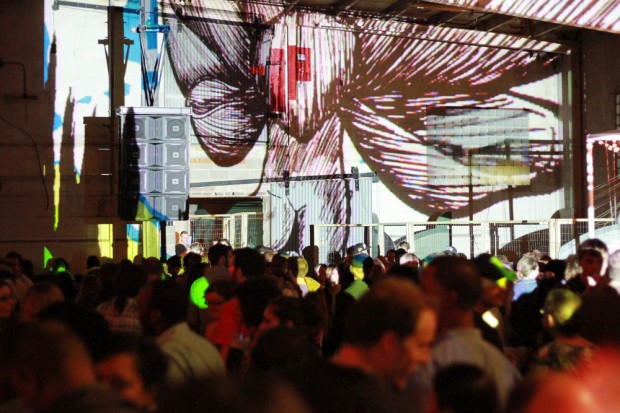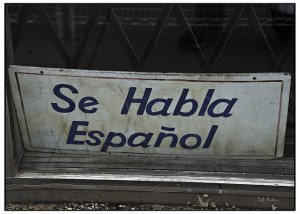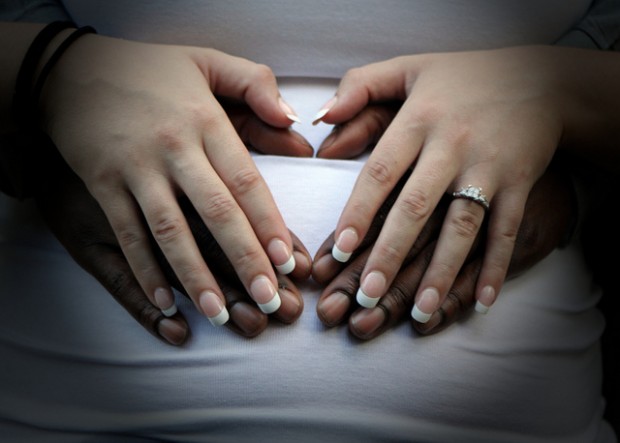
Nahal Tavangar / @NahalTav
About 1,200 people attended the fourth annual Cherry Blast party in Anacostia.
Trapeze artists hovered above a crowd. A band played electronic music as green lasers flashed through the room. Nearby, people created silk-screened T-shirts, a video installation played against the wall and the crowd tossed a large, clear plastic bubble filled with pink balloons in the air.
The annual Cherry Blast event on Saturday night was in many ways a creative, warehouse party. It pulled together all sorts of artistic and musical spectacles that attracted a racially diverse crowd of 1,200 willing to pay $10 a ticket to enter.
But this party didn’t happen in Northwest or near gentrifying H Street NE. Cherry Blast, produced by The Pink Line Project, took place in a vacant police evidence warehouse in Anacostia, and drew attendees largely from other parts of town, many of whom were young and white.
Anacostia has a rich history, but in recent years the neighborhood has developed a reputation as dangerous and poor, a perception that local activists have been battling. It’s a mostly black neighborhood that doesn’t typically attract many white people.
Cherry Blast comes on the heels of Lumen8Anacostia, a weekend of art events and pop-ups held throughout the neighborhood. These events have given people, who normally don’t trek east of the Anacostia River, a reason to visit the neighborhood. But in doing so, they’ve raised questions about race and class.
Continue reading →








